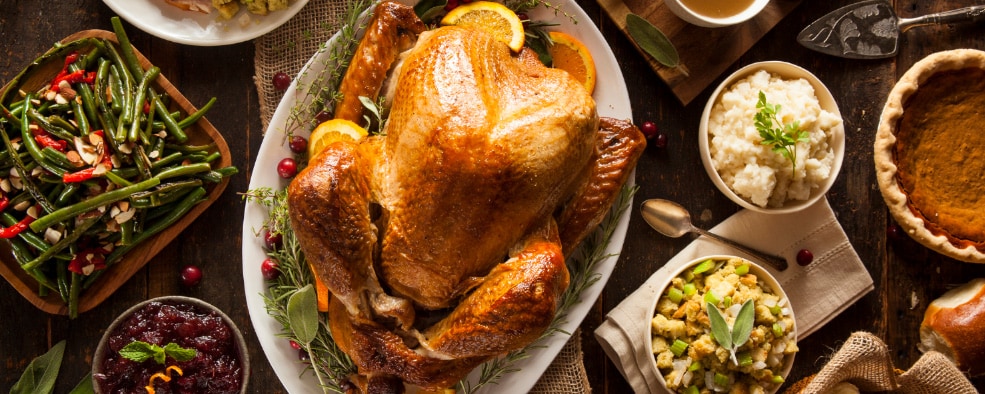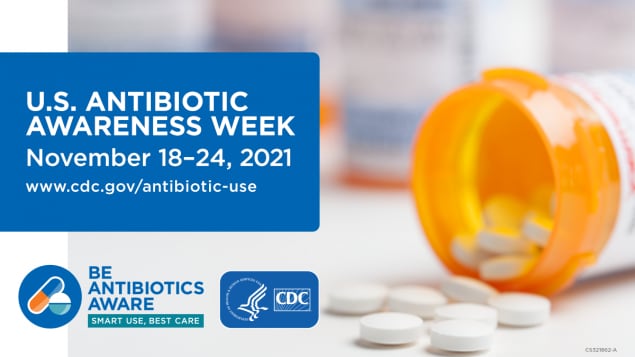CDC and Food Safety Newsletter
Updated November 18, 2021
Keep Food Safety on Your Holiday Menu

If you’re cooking turkey or other poultry this Thanksgiving, remember to cook it to an internal temperature of 165°F to make sure it’s safe to eat. Use a thermometer to check.
The holidays are right around the corner, and it’s a great time of year to enjoy special meals with loved ones. Freshen up on food safety practices that will help you have a safe and happy holiday season.
- Food Safety Tips for Your Holiday Turkey
- Food Safety for the Holidays
- Preparing Chitlins Safely
- Prevent Illness From C. perfringens When Cooking Roasts and Other Food
CDC Study Shows Types of Salmonella That Make People Sick After Thanksgiving
At Thanksgiving, meals often center around turkey, with 88% of people in the United States reporting eating turkey at Thanksgiving.
Safely handling and preparing this holiday favorite is very important. Poultry—mainly chicken and turkey—is often contaminated with Salmonella, a germ that can make people seriously ill and can even lead to death. Salmonella can spread from poultry to people, especially when people handle raw poultry, eat raw or undercooked poultry, or let raw poultry or its juices touch foods that are served raw or lightly cooked.
Previous research has shown which types of Salmonella are more likely to cause outbreaks, but less is known about illnesses not linked to outbreaks. CDC conducted a study to learn which types of Salmonella are more likely to cause illnesses soon after Thanksgiving. The Salmonella type most strongly associated with Thanksgiving—and likely turkey too—was Reading, followed by types Hadar, Schwarzengrund, and Heidelberg.
These findings might help the turkey industry produce safer turkeys. In the meantime, consumers should consider that all raw poultry might be contaminated with Salmonella or other harmful germs. Protect yourself by cooking poultry to a safe internal temperatureexternal icon and following these steps to prevent cross-contamination.
Be Antibiotics Aware: Antibiotic Awareness Week Starts November 18

U.S. Antibiotic Awareness Week (USAAW) is November 18–24. The annual observance reminds us of the importance of preserving the effectiveness of life-saving antibiotics and preventing the spread of antibiotic-resistant bacteria, including those spread through food.
Antibiotics save lives, but any time antibiotics are used, they can contribute to the development and spread of antibiotic resistance. Antibiotic-resistant infections are harder and more costly to treat and can cause severe infections and even death.
Everyone can take steps to Be Antibiotics Aware, preserve the effectiveness of antibiotics, and prevent infections. At home, follow the four steps to food safety to prevent getting sick: clean, separate, cook, and chill.
To help slow the spread of antibiotic-resistant bacteria, take antibiotics only when needed and take them exactly as prescribed by your healthcare provider.
Antibiotic resistance happens when bacteria develop the ability to survive or grow despite being exposed to antibiotics designed to kill them. Antibiotic resistance is a significant global health challenge. Resistant bacteria may spread to people, animals, and the environment.
Share social media messages using #USAAW21 and #BeAntibioticsAware to be part of the conversation.